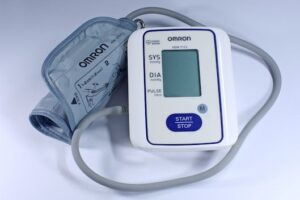This is the Silent Killer!
Heart attacks are one of the leading causes of death worldwide, and it is important to understand the underlying causes of this condition. In the recent news of the sudden death of a young and healthy cine actors, for example, Siddharth Shukla, many people are left wondering how someone so young and fit could succumb to a heart attack.
As a medical doctor, I want to shed some light on the subject of heart attacks and how they occur. Initial reports suggest that Siddharth died of a massive heart attack, which is a shocking and unfortunate event. However, it is important to note that heart attacks are not always caused by a lack of physical fitness or healthy lifestyle.
The main cause of heart attacks is a buildup of plaque in the heart’s arteries. This plaque is caused by low-grade chronic inflammation, which is a prolonged and ongoing type of inflammation that occurs over a long period of time. Chronic inflammation is a silent killer that can lead to a host of health problems, including heart disease.
While many people believe that heart disease is caused by factors such as cholesterol, blood pressure, and diabetes, these are actually just surrogate markers for the underlying cause of chronic inflammation. Chronic inflammation can cause a buildup of plaque over time, which can lead to a progressive narrowing of the blood vessels. This narrowing reduces blood flow to the heart muscle, causing symptoms such as chest discomfort and breathlessness brought on by physical exertion.
If left unaddressed, this progressive narrowing can lead to a heart attack. However, it is important to note that patients with progressive narrowing often experience warning symptoms, such as chest discomfort and breathlessness, which allow them to seek help and potentially prevent a heart attack.
It is a tragic event when someone as young and healthy as Siddharth Shukla dies of a heart attack. But it is important to understand that heart attacks are not always caused by a lack of physical fitness or healthy lifestyle. Chronic inflammation is a silent killer that can lead to heart disease and should not be overlooked. It’s important for everyone to be aware of their risk factors and to take steps to reduce inflammation in order to prevent heart attacks.
In memory of Siddharth Shukla and all the others who have lost their lives to heart attacks, let’s spread awareness and take action to prevent this devastating condition.
The physical symptoms of chronic inflammation in the body can vary depending on the specific area of the body that is affected. However, some common symptoms include:
- Fatigue: Chronic inflammation can cause feelings of fatigue or lack of energy.
- Pain: Inflammation can cause pain in various parts of the body, such as joints, muscles, and internal organs.
- Swelling: Inflammation can cause swelling or puffiness in certain areas of the body, such as the joints or abdomen.
- Redness: The affected area may appear red or warm to the touch.
- Weight changes: Chronic inflammation can lead to weight gain or loss.
- Skin changes: Inflammation can cause skin rashes, acne, eczema, and other skin conditions.
- Digestive issues: Inflammation in the gut can cause diarrhea, constipation, abdominal pain, and bloating.
- Sleep disturbances: Inflammation can disrupt sleep patterns and cause insomnia.
- Depression and anxiety: Chronic inflammation has been linked to mood disorders such as depression and anxiety.
It’s important to note that these symptoms can also be caused by other conditions and it’s always recommended to seek professional medical advice if you experience any of these symptoms or if you have concerns about your health.
There are several ways to reduce chronic inflammation in the body. Here are a few strategies that may be helpful:
- Diet: Eating a diet rich in fruits, vegetables, whole grains, and lean proteins can help reduce inflammation. Avoiding processed foods, refined sugars, and saturated fats can also help lower inflammation. Some studies have found that consuming anti-inflammatory foods such as turmeric, ginger, and omega-3 fatty acids from fish, chia seeds, and flaxseed can also be beneficial.
- Exercise: Regular physical activity can help reduce inflammation in the body. Aim for at least 30 minutes of moderate-intensity exercise most days of the week.
- Stress management: Chronic stress can contribute to inflammation in the body. Practicing stress-reducing techniques such as yoga, meditation, and deep breathing can help lower stress levels.
- Sleep: Getting enough quality sleep is important for overall health, including reducing inflammation. Aim for 7-9 hours of sleep per night.
- Avoid smoking and limit alcohol consumption: Both smoking and excessive alcohol consumption are known to increase inflammation in the body.
- Maintaining a healthy weight: Being overweight or obese can lead to chronic inflammation, losing weight can help reduce it.
- Consider supplements: some supplements like fish oil, curcumin, and ginger are known to have anti-inflammatory properties and may be beneficial for reducing inflammation in the body. It’s important to consult with a health professional before taking any supplements.
- Medications: Your doctor may recommend medications like Non-steroidal anti-inflammatory drugs (NSAIDs) and corticosteroids to help reduce inflammation in the body.
It’s important to note that everyone’s body is different and what works for one person may not work for another. It’s always recommended to consult with a healthcare professional before making any significant changes to your diet or lifestyle.


